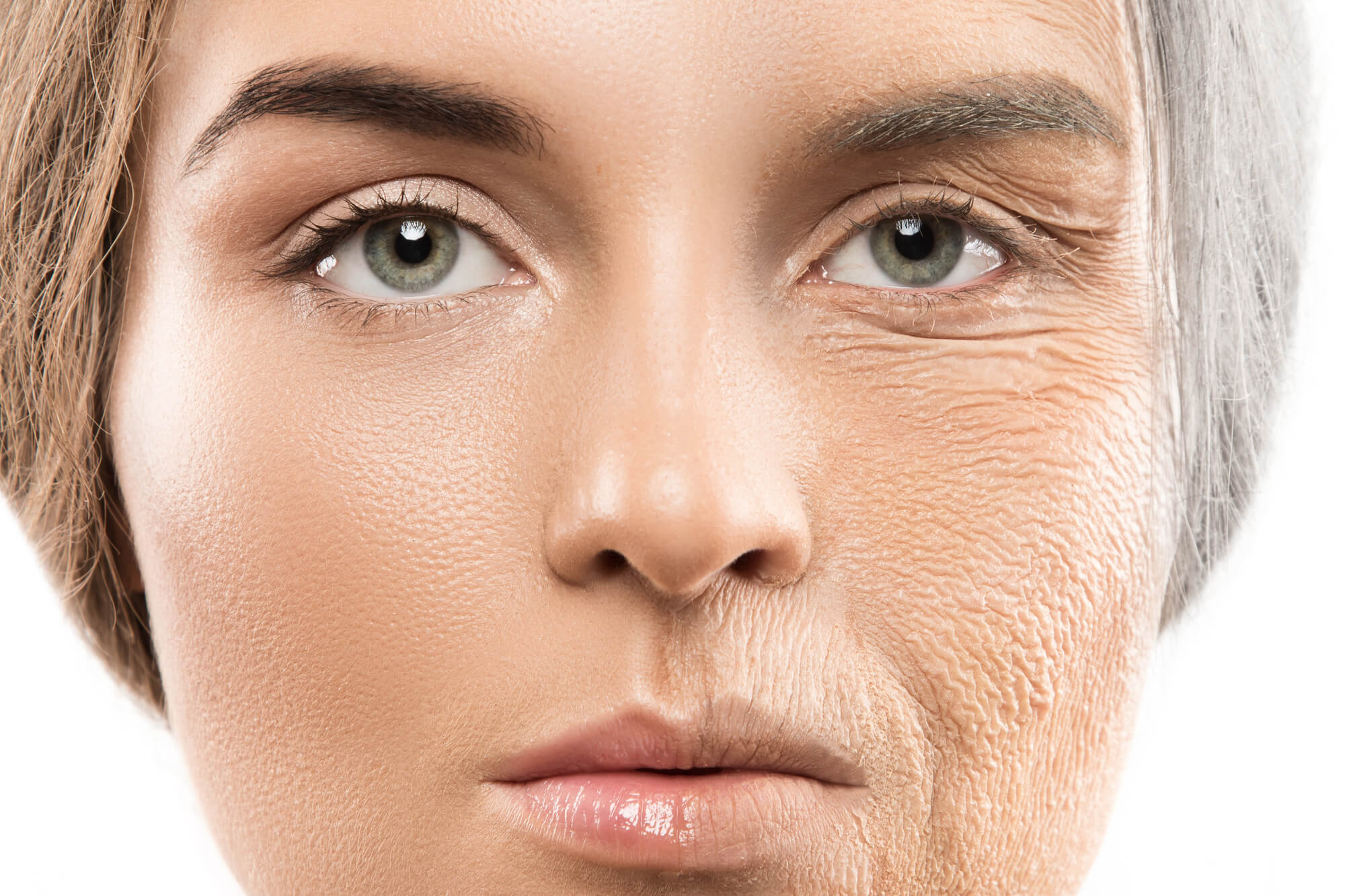

Everything You Need to Know About Caring for Your Skin in Menopause
What is Menopause?
Menopause is a natural stage in life when a woman stops having her monthly period. Menopause occurs when a woman, typically in her late 40s to early 50s, has gone 12 consecutive months without a menstrual period. This process involves declining levels of the female reproductive hormone, estrogen, which leads to a number of physical symptoms such as hot flashes and vaginal dryness.
How Does Menopause Impact the Skin?
Declining estrogen levels during menopause lead to noticeable changes in the skin. Because estrogen is responsible for functions like collagen production, hydration, and skin barrier maintenance, declining levels of the hormone contribute to skin dehydration, increased wrinkling, and a general loss in skin elasticity.
Menopause also leads to a natural slowdown of the skin’s cellular turnover process, which can impact the skin’s tautness, firmness, and brightness.
Since progesterone and androgen levels also decline during menopause, this reduces the skin’s overall sebum production. Not only does this leave skin drier and more sensitive, it also makes it more prone to inflammation and irritation.
Top Tips for Menopausal Skin Care
If you’re currently going through menopause, there are steps you can take to lessen the impacts on your skin.
Embrace Antioxidants
Antioxidants are a game changer for your skin! During menopause your collagen levels deplete, so it's super important to keep those levels up by eating antioxidant-rich foods or by taking supplements like our Lilium skin hydration supplement! Lilium is packed with a powerful blend of skin-loving vitamins and nutrients that boost elasticity and hydrate your skin at the cell level!
Don’t Skimp Out on SPF
By now you’ve definitely heard that sunscreen is a skincare must, but it’s even more important to be diligent about your SPF as you age. This is because your skin may have less natural protection than when you were younger.
SPF is also important during menopause because age spots on the face, hands, and chest area can appear more visible during menopause, and sunscreen is the best way to keep your skin protected and prevent new spots from forming!
Remember to Get Your Beauty Sleep
Sleep is an essential part of keeping skin looking healthy and fresh – especially as you age. Not only does sleep help to prevent dark under-eye circles, it also aids in the regulation of your body’s metabolism and hormone levels. Your skin’s metabolic rate increases at night, while your body’s metabolic rate decreases - this means that your skin cells turn over more quickly at night and the production of new, healthy cells accelerates. Your body’s human growth hormone-levels also rise while you sleep, which further helps to stimulate cell regeneration. So we recommend aiming for 7 to 9 hours of beauty rest per night to let these natural processes work their magic for your skin!
Keep on Movin’
Exercise is all-around great for your body, but it can also help your skin during menopause too! Exercise enhances circulation, which typically begins to slow as you age. The boosted oxygen and blood flow will help your skin look healthy and bright!
Hydrate, Hydrate, Hydrate
In menopause, your skin’s ability to retain water lessens. What’s more, your oil glands gradually become less active. This can leave your skin feeling dry, flaky, and itchy. That’s why moisturizing is essential during and after menopause. If you’re looking for that perfect hydration boost, we recommend moisturizing right when you get out of the shower (while your skin is still damp) using our Rosa gentle daily moisturizer! Rosa provides an all natural super-blend of products to moisturize the skin and soothe irritations, so it’s the perfect lightweight hydrator for your menopausal skin!
